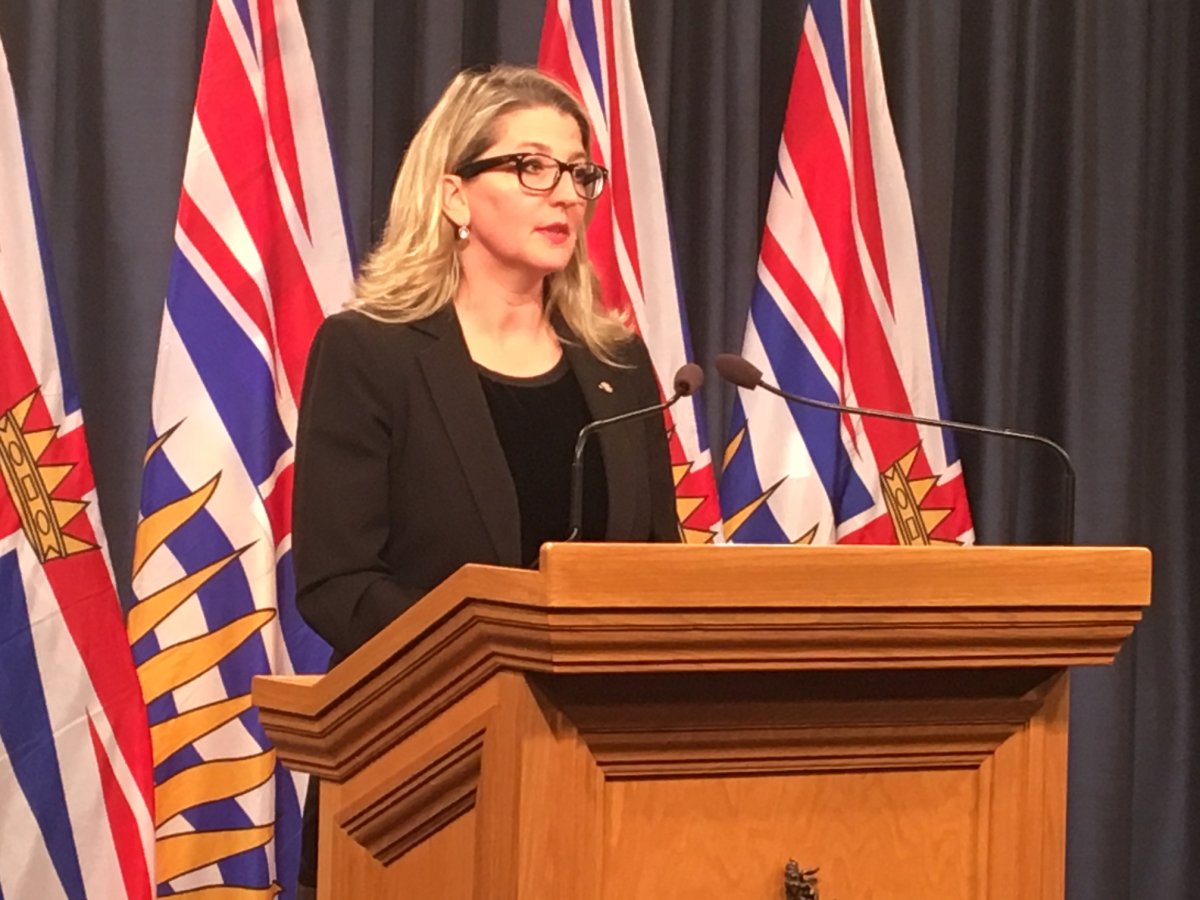The NDP government has unveiled its first example of what obtaining the “consent” of First Nations for resource development projects is supposed to look like, and things are as confusing and uncertain as ever.

Last week, Agriculture Minister Lana Popham announced a new government policy regarding aquaculture operations, one that she says breaks the status quo and charts a bold new path forward that will require any First Nations affected by a fish farm to be supportive of that project.
However, that policy doesn’t take effect until June 30th, 2022. That is well after the next scheduled election, and there is no guarantee the party in power that created this policy will still be in power when it becomes operational.
Whichever party wins the next election will be free to come up with its own policy regarding aquaculture, including whether or not First Nations’ support is a requirement for fish farms to exist.
So perhaps First Nations’ support will be required. One day. Maybe. Check in again four years from now.
That is one uncertainty.
Here is another: we still do not have a clue of what, exactly, is meant by “consent” when it comes to actually being implemented in practice.
WATCH HERE: Changes coming to B.C. fish farms

At her news conference, Popham was asked several times to offer her definition of “consent” when it came to fish farm operations and she declined to do so each time.
“Right now, we are working with the word agreement,” she said. “As far as the technical details around that, I think we’re going to have to see how that works. That’s why we have this four-year term.”
When she was asked what would happen if an elected band council were in favor of a fish farm but, say, some hereditary chiefs were opposed, no clarity was provided. And what if one First Nation supported a fish farm but another First Nation with an overlapping claim opposed it? Again, there was no clear answer.
WATCH HERE: New study shows wild salmon are infected by fish farm viruses

But she did provide a tiny clue about how this may play out, saying there are existing operating agreements between fish farm operators and local First Nations.
“We might look to how those are being done now,” the minister offered.
Popham was not the only government official unable to provide much certainty about a concept that has potentially enormous implications for all kinds of natural resource industries — forestry, mining, natural gas, and so on.
- Conservatives ask interference inquiry judge to rule elections were flawed
- Ontario premier calls cost of gas ‘absolutely disgusting,’ raises price-gouging concerns
- Ottawa ‘doubling down’ on foreign aid amid global decline: minister
- Former B.C. minister Mike de Jong seeks federal Conservative nomination
In a technical briefing for reporters that preceded Popham’s news conference, her ministry’s senior officials were similarly vague about defining what is meant by “consent” and suggested it may take various and different forms.
That “maybe yes, maybe no” approach will hardly inspire much investor confidence out there.
We may get a better sense of things when the fate of some of the most controversial fish farms — those in the Broughton Archipelago off the northern end of Vancouver Island — is decided. Those operations are the subject of ongoing negotiations between the provincial government and local First Nations there.
Given the opposition that First Nations have against those Broughton Archipelago farms, it is hard to envision many of them being allowed to continue to operate (even though the farms also have the support of some First Nations) long-term. For now, their leases are being renewed on a month-to-month basis, and there is no indication how long those negotiations will take.
The NDP government remains committed to giving First Nations “free, prior and informed consent” over development, as outlined in the United Nations Declaration of the Rights of Indigenous Peoples. It was a controversial promise when it was first made (the federal Liberal party made the same promise while in Opposition, and backed away from it when it formed government because it felt “consent” was legally problematic) and it will likely grow in controversy as it begins to take shape.
We have now had our first look at how that pledge will eventually be applied to a particular industry, and it looks like First Nations will be given a de facto veto in that instance.
But we are scarcely better informed at what this promise will look like, in the short term, on the ground and in practice, after it evolves from being a theoretical concept to becoming a specific, real thing.
Keith Baldrey is chief political correspondent for Global BC




Comments